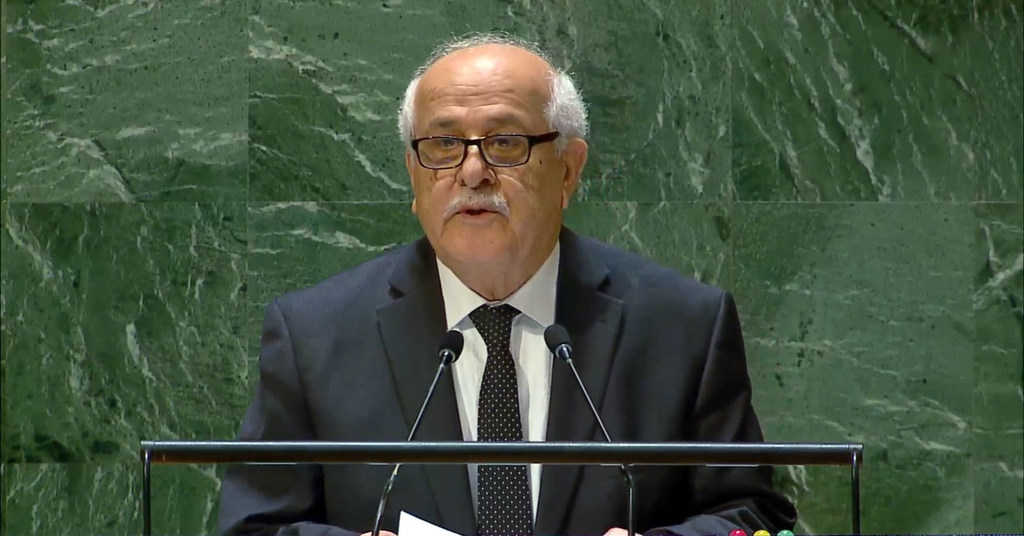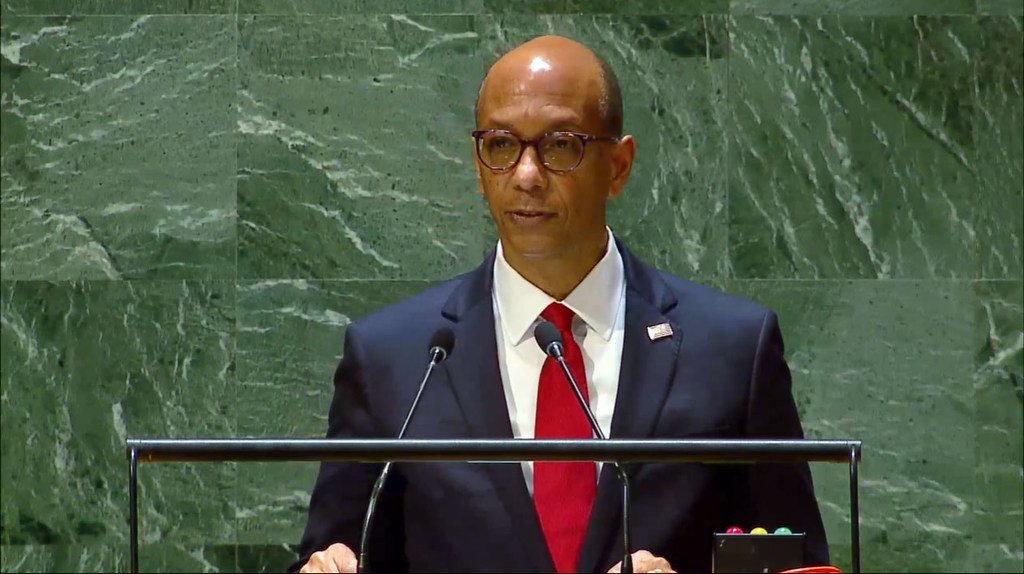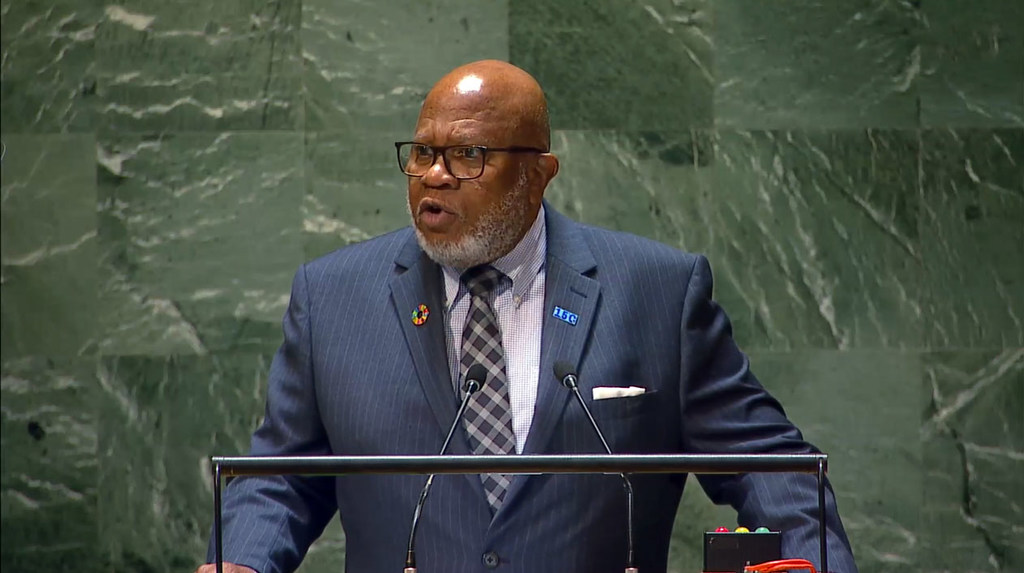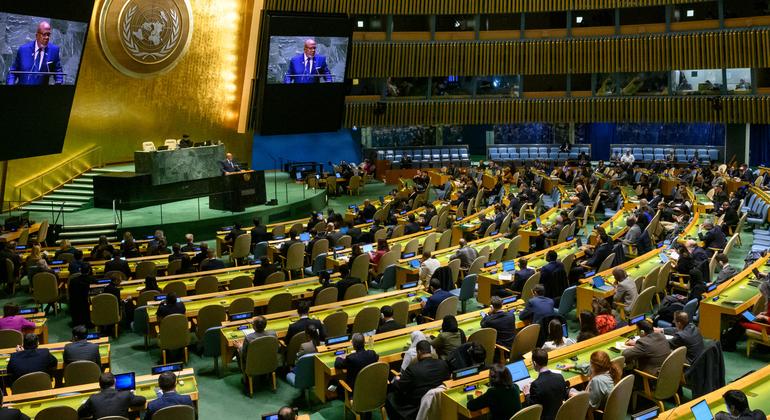10:51 AM
Israel: Ceasefire must have pre-conditions
Gilad Menashe Erdan, Ambassador and Permanent Representative of Israel to the UN, said that it has been 150 days since Hamas committed “the most brutal and barbaric massacre since the Holocaust”.
“Once again, this body [General Assembly] has convened not to condemn Hamas, no. Not to condemn their atrocities, but to focus again only on the situation in Gaza, as if 7 October never happened, as if there are not 134 innocent hostages held and tortured in Gaza right now,” he said.
He noted that over the five months, “not one” discussion at the Assembly on the wellbeing of hostages or on the sexual violence perpetrated by the group.
Mr. Erdan called on the Secretary-General and the Security Council to convene immediately to “finally condemn Hamas’ heinous crimes”.
“Hamas must face unrelenting pressure to end their sexual violence and release all of the hostages immediately,” he stressed.
10:22 AM
Palestine: Israeli atrocities are ‘unchecked, unhinged’
Riyad Mansour, Permanent Observer of the State of Palestine, stated that there is no greater to international peace and security than the commission of atrocities, adding that for five months now, “Israel has been committing atrocities against the Palestinian people, unchecked and unhinged.”

Riyad Mansour, Permanent Observer of the State of Palestine to the United Nations.
“The Security Council has been prevented repeatedly from calling for an immediate ceasefire to put an end to these atrocities,” he said, emphasizing the dire impact of the conflict on Palestinian civilians, especially children, and demanding that the “war of atrocities” must stop.
“Israel must be told to ceasefire, to cease fire now,” he said.
Mr. Mansour stated that there were “reasons why ethnic cleansing” was possible in Palestine.
“It is the certainty of the perpetrators that they will never be held accountable,” he added, calling for an end to “Israeli impunity”.
“The era of Israeli impunity must come to an end, and we should enter a new era of accountability and sanctions,” he stressed.
10:19 AM
US: Working on new draft resolution
The draft resolution at hand would not have achieved the goal of sustainable peace nor resulted in a ceasefire, said Robert A. Wood, United States Deputy Permanent Representative to the UN.

Deputy Permanent Representative Robert A. Wood of the United States.
Indeed, his delegation had cautioned the Security Council that doing so could disrupt the intensive efforts underway to release the hostages and achieve a temporary ceasefire. Instead, the US has circulated a draft that would achieve a temporary ceasefire which would allow hostages to go home to their families and would help get aid into the hands of Palestinian civilians, who so desperately need it.
“The question before us is what is the most effective way to achieve these goals,” he said. “In our judgment, it is the work of the United States, both here in New York and on the ground.”
Washington will continue working to get more aid in as well as engaging tirelessly in direct diplomacy and negotiations on the ground, he said.
“We remain committed to engage constructively on our resolution in the days to come,” he said.
10:15 AM
General Assembly President calls for ceasefire
General Assembly President Francis said that from the UN’s inception in 1945, the world body and the Security Council have an overarching duty to save generations from the scourge of war, and called for the international community to act now to end Gaza crisis.

General Assembly President Dennis Francis.
“The situation in Gaza is catastrophic, unconscionable, shameful,” he said. “I am shocked and horrified at the reported killing and injury of hundreds of people during disbursement of aid supplies, west of Gaza City last week.”
This comes with a rising death toll, babies dying of starvation, and 85 percent of Gaza’s population – or 1.9 million people – are internally displaced.
Extremely concerned about pending Israeli ground operations in Rafah, where nearly 1.5 million people now reside, he urgently call for maximum restraint to prevail in order to save innocent civilian lives.
Israeli restrictions on humanitarian access have drastically reduced the flow of lifesaving aid to a mere trickle, with UNRWA reports a significant 50 per cent reduction in the number of trucks entering Gaza daily from January to February, he said.
“It is therefore essential that we rapidly and substantially increase the scale of humanitarian operations and ensure unrestricted access to all civilians in need,” he said.
First and foremost, an immediate humanitarian ceasefire must be implemented and all parties must comply with their obligations under international human rights law and international humanitarian law, especially as it relates to the protection of civilians and civilian facilities.
In addition, all hostages must be immediately and unconditionally released, and full and unimpeded access to humanitarian assistance by those in need must be ensured.
Debate on veto use
The Assembly will debate the latest Council rejection of a draft resolution on a Gaza ceasefire under a mechanism that examines the use of veto in the Security Council, which can trigger an emergency special session on the matter. Read our explainer what happens when the Security Council fails to reach agreement here and on emergency special sessions here.
Security Council deadlock
For weeks, the Security Council has been deadlocked over adopting a resolution to end the war, which has killed more than 30,000 Palestinians and left hundreds of thousands facing severe hunger. The US has vetoed several drafts since the start of the war. The Council’s five permanent members (China, France, Russia, United Kingdom, United States) have the power to cast a veto.
Over the weekend, the Security Council issued a statement calling for immediate action to swiftly ramp up aid delivery to the enclave, especially to the devastated northern region.
That came after last Thursday’s deadly attack on hungry Palestinians waiting for aid deliveries organized by Israel.
In the 15-member organ’s statement, the Council expressed deep concern over reports that “more than 100 individuals lost their lives, with several hundred others sustaining injuries, including gunshot wounds…in an incident involving Israeli forces at a large gathering surrounding a humanitarian assistance convoy southwest of Gaza City.”
According to media reports, on a Saturday, a similar Israeli attack on Gazans waiting for aid left many dead and many more injured.
UNRWA to brief General Assembly
Later in the day, the General Assembly will hear a briefing by Philippe Lazzarini, the head of the UN agency for Palestine refugees, UNRWA, who is expected to brief following his letter to Assembly President Dennis Francis last week.
In the letter, the UNRWA chief said the agency would soon be unable to fulfil its mandate because of funding cuts stemming from Israel’s allegations that agency workers were complicit in Hamas’s October attacks.



